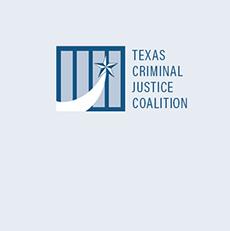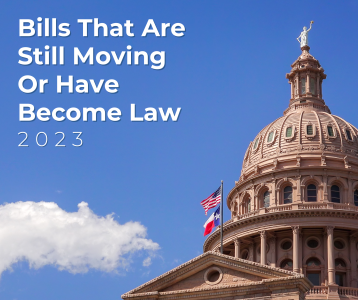Mitigating Disaster: Urgent and Just Responses to COVID-19 in the Texas Justice System

March 16, 2020
The Honorable Greg Abbott
Office of the Texas Governor
P.O. Box 12428
Austin, TX 78711
Mitigating Disaster: Urgent and Just Responses to COVID-19 in the Texas Justice System
Dear Governor Abbott:
Thank you for quickly halting visitation in Texas prisons and jails across the state in response to the grave threat that a COVID-19 contagion poses to incarcerated populations and staff members. Today we write to you in support of critical next steps, because many vectors of transmission remain, including staff and supply chains, and because the risks of not acting quickly are so significant.
People incarcerated in state prisons or county jails often lack access to some of the most basic disease prevention measures. Certain cleaning supplies and sanitizers are classified as contraband, and running water, soap, and the freedom to social distance are often simply out of reach. Health experts warn that a serious and urgent response must be implemented.
Many Texas facilities are either unaware of the Centers for Disease Control’s guidelines for disease prevention, or they are hindered from adhering to these guidelines due to a lack of resources for incarcerated individuals and the staff and officers who work in correctional facilities. We fear the inevitable spread of the virus makes those who are incarcerated particularly vulnerable to the disease, and leaves facilities as a whole susceptible to a devastating outbreak.
While all people working or living in confinement settings are at risk, the virus will be especially dangerous for the rapidly growing aging population, those with disabilities, and those with chronic health issues. Moreover, the impact of an inadequate response reaches far beyond incarcerated people themselves. When this highly transmissible virus passes through facilities, confined individuals are likely to contract the virus from staff who enter and exit facilities daily—and staff who have not yet been infected will be at greater risk of becoming ill.
This will be exacerbated by the significant understaffing issues already plaguing Texas prisons and jails. As concerns about contracting the virus rise for staff members, and as childcare becomes less accessible for staff members who are primary caretakers, staffing facilities will become more difficult. This will create significant safety risks for both incarcerated people and staff. Today, Texas officials still have the opportunity to act decisively in the interest of public safety before the pandemic escalates to the level of severity that it has already escalated to in other countries. In addition to strategies to slow the spread of this virus and “flatten the curve,” we recommend mitigation strategies to prevent further dangerous situations, such as the riots and death that have occurred in facilities in China and Italy. This is a critical moment for Texas to align with best practices and protect those most vulnerable with a humane, safety-focused, public health response.
For this reason, a coalition of experts—many of those with lived experience—have come together to develop a list of the most urgent and necessary recommendations to ensure the well-being and safety of our communities in Texas jails, prisons, and juvenile detention facilities. The list of immediate recommended actions are grouped by segments of Texas’ massive justice system.
We ask that you immediately issue directives to state agencies and recipients of state funds who have the authority to act on these directives to safely reduce correctional populations and protect incarcerated individuals and staff within correctional institutions.
Respectfully,
Be Frank, Inc.
Maria Brown-Spence, Hearts2Heal
David W. Collingsworth, Producer, The Prison Show - 90.1 FM KPFT
Michele Deitch, Senior Lecturer, Lyndon B Johnson School of Public Affairs, University of Texas at Austin*
Savannah Eldrige
Free Battered Texas Women
Helen Gaebler, Senior Research Attorney, William Wayne Justice Center for Public Interest Law at UT*
Elizabeth Gillette
Girls Embracing Motherhood (GEM)
Giving Austin Labor Support (GALS)
Grassroots Leadership
Tanya Hale, Surviving Cells
Faylita Hicks, Author
Mano Amiga
Roderick McNeely
MEASURE
Kathy Mitchell, Policy Coordinator, Just Liberty
Ranjana Natarajan, Clinical Professor University of Texas School of Law*
Laurie Pherigo, Advocacy Fellow, Reentry Advocacy Project
Prison Abolition Prisoner Support (PAPS)
Restorer of City Streets
Texas Appleseed
Texas Criminal Defense Lawyers Association
Texas Criminal Justice Coalition
Texas Fair Defense Project
Texas Inmate Families Association
Texas Jail Project
Texas Prisons Air-Conditioning Advocates
Truth Be Told
William C. Velasquez Institute
Dianna Williams, Texas Advocates for Justice Houston
Angelica Zaragoza, Program Coordinator, GEM
*Please note that individuals represent themselves, not the organizations with which they are affiliated
Directives to Specific Parts of the Justice System
- Texas Department of Criminal Justice & Board of Pardons and Paroles
- County Jails (Sheriffs, Courts, and District Attorneys)
- Texas Commission on Jail Standards
- Law Enforcement Agencies
- Texas Juvenile Justice Department
Related to the Texas Department of Criminal Justice (TDCJ) & Board of Pardons and Paroles
COVID-19 is highly contagious and is most dangerous to populations with weaker immune systems, especially older individuals and people with existing health issues. The Texas prison population, with its rapidly aging population with higher rates of chronic illness living in close quarters, is at extreme risk. Even one case will strain the prison health care system to its maximum capacity, and will likely result in already-understaffed facilities becoming dangerously understaffed. It is critical for the State to immediately decrease the population, as other states and countries are doing, while implementing rapid and measured infection-control protocols. We have outlined specific requests and would greatly appreciate an immediate response:
- Reduce the Texas prison population as quickly and safely as possible:
- Identify all individuals who qualify for early release through state jail diligent participation credits, and urgently request that judges approve release.
- For all people who have been approved for parole or who are in the last phase of rehabilitative programming, immediately process their release.
- Expedite release of all individuals who are within six months of their discretionary mandatory supervision date.
- Identify people who are elderly, those with chronic illnesses, and those with acute conditions who are eligible for parole, and review their cases for immediate release.
- If a person is otherwise eligible for parole, limit “nature of offense” reasoning for the denial of parole.
- Perform an immediate assessment of TDCJ’s level of preparedness in the event of a COVID-19 outbreak, and begin implementing relevant protocols to protect staff and incarcerated individuals:
- Assess infection-control policies, to include immediate training and preparation of prison personnel.
- Identify incarcerated individuals most vulnerable to the possibly deadly effects of COVID-19, and begin protection.
- Assess the availability of test kits for staff, officers, and incarcerated individuals.
- Ensure prevention resources are now readily available to people in custody, to include hand sanitizer, soap, and cleaning supplies for cells and living areas. Ensure such supplies are not treated as contraband.
- Assess the availability of medical staff to meet the needs of incarcerated individuals, especially when the state public health system is strained.
- Assess the availability of all basic necessities such as toilet paper, hygiene items, etc.
- Implement protocols to screen staff for possible contagion prior to entering the facility.
- Ensure coordination between TDCJ and Department of State Health Services, to include:
- Immediate reporting of positive COVID-19 tests to state health officials, the Centers for Disease Control (CDC), and families, and very clear consequences for failing to report positive tests.
- Strict following of CDC guidelines for protection of vulnerable populations.
- Eliminate all medical co-payments during this period, and ensure that sick-call requests from those displaying symptoms of COVID-19 are prioritized; also ensure such individuals are seen immediately by a health care professional.
- Keep families well-informed about health protocols and the status of facilities through web-based town halls and other means.
- Ensure that all incarcerated individuals are provided with detailed and constantly updated information about COVID-19, its symptoms, and ways to prevent its transmission.
- Schedule an immediate teleconference hearing between Senator John Whitmire, Chairman of the Senate Criminal Justice Committee, Representative James White, Chairman of the House Corrections Committee, and TDCJ—with stakeholders and members of the public included.
- Recognizing that visitation and movement within units will be restricted, implement measures that mitigate the harmful effects of long-term isolation:
- Provide an opportunity for low-cost or free phone calls and video calls, but monitor individual time limits so that phone and video time is allocated fairly.
- Lock down larger cell blocks or dorms rather than individual cells.
- Provide access to commissary items.
- Make tablets available.
- Implement social distancing, but with mitigation measures included. A long-term lockdown will elevate tensions and increase the risk of riots:
- Reduce the use of dining facilities.
- Eliminate pill lines—expanding the types of medication that incarcerated individuals may keep in their own possession and delivering medication directly to living quarters.
- Limit the number of people admitted to shower areas at one time.
- Where lines are inevitable, implement efforts to create social distancing between individuals on those lines.
- Encourage all staff to increase their use of de-escalation measures as a way to reduce tensions and the risk of violence, and to reduce the need for hands-on contact.
- Protect staff members and officers as well as incarcerated individuals:
- Accommodate alternative schedules for staff who have children out of school.
- Provide screening, masks, and other protective gear to staff.
- Ensure that any incarcerated workers, including those trustees who move among cellblocks, are sufficiently protected and that they are not allowed to work if they show any signs of illness.
- Protect the well-being of people in administrative segregation, in protective custody, and on death row:
- Provide the maximum allowable time out of the cell.
- Provide additional measures to prevent boredom and agitation.
- Mitigate the impact of no visitation by allowing for additional phone calls, especially for death row inmates who are currently allowed one call every 90 days.
- Recognize that anxiety and tension among the incarcerated population, as well as enforced idleness and increased cell confinement, may lead to increased risks of violence or sexual assault. Ensure staff remain vigilant to these risks and continue to implement all PREA requirements.
- Reduce inter-unit transfers to the greatest extent possible and ensure that any person transferred does not enter the population until after they have been sufficiently screened and isolated.
- Ensure that all transfer vehicles are regularly sanitized.
- Ensure that attorneys have the ability to meet with clients, even if regular visitation is suspended. Facilitate these confidential meetings through video conferencing, phone calls, or in non-contact visitation areas.
- Halt blue warrants for parole violations except for new felony offenses or violations that threaten the safety of others.
- Require the Parole Division to immediately cancel in-person visits to the parole office, and schedule visits via teleconferencing.
- Require the Community Justice Assistance Division to immediately authorize probation departments to directly supervise people on probation via teleconference, and ensure the State continues to pay the per-capita rate for direct supervision.
Related to County Jails (Guidance to Sheriffs, Judges, District Attorneys, and Community Supervision Directors)
Without implementing mitigating strategies, county jails will rapidly become incubators for COVID-19. Individuals in county jails are held in holding tanks, often with dozens of other people, and the disproportionate rates of chronic illness among those in custody put this population at high risk of extreme illness and death. Moreover, the fact that courts are slowing down or stopping hearings means that jail populations may soon swell with people awaiting hearings and trials, further increasing the risk of exposure to the virus. County sheriffs and district attorneys should urge local law enforcement to promptly halt arrests of anyone who does not pose an immediate threat to public safety, as jurisdictions across the state and country are doing to reduce jail populations.
Over and above that, county officials should immediately:
- Work with judges and district attorneys to secure prompt pretrial release on personal recognizance (PR) bond for anyone who does not pose an immediate threat to public safety. This should include a special emphasis on vulnerable populations, even if they are not detained pretrial, including those who are immuno-compromised, pregnant, or disabled.
- Urgently request that judges release those sentenced to county jail for misdemeanor charges, except in cases that may pose a risk to individuals within the community.
- Urge judges to hold video hearings to ensure that people do not spend more time in custody than absolutely necessary and so they do not need to spend time in courtrooms or transfer vehicles.
- Suspend the use of county facilities for ICE detainees, as well as the use of local law enforcement for the enforcement of immigration warrants and subpoenas.
- Communicate with probation authorities to halt the issuance of blue warrants for probation violations, except for new felony offenses or violations that threaten the safety of others.
- Provide on-site testing capabilities for officers, staff, and detained individuals.
- Reject the admission to jail of any arrestee who shows signs of illness.
- Immediately report all positive COVID-19 cases of people detained or officers/staff who have worked within a jail to the Department of State Health Services and the Centers for Disease Control; establish very clear consequences for failing to report positive tests, and keep the public informed when positive cases occur.
- Implement social distancing measures in direct supervision booking areas.
- Eliminate all medical co-payments and related fees for the foreseeable future.
- Ensure that all incarcerated individuals are provided with detailed and constantly updated information about COVID-19, its symptoms, and ways to prevent its transmission.
- Ensure prevention resources are readily available to people in custody, including hand sanitizer, soap, and cleaning supplies for cells and living areas. Ensure such supplies are not treated as contraband.
- Provide ample supplies of soap, hygiene items, and toilet paper free of charge to incarcerated individuals.
- Mitigate the risks of unrest among those detained in county jail during times of restricted activity and no visitation, with measures including:
- Providing remote classes and video visitation;
- Waiving or lowering the price of phone calls;
- Providing ample reading material, television access, and access to radios;
- Providing access to the commissary;
- Increasing recreation out-of-doors; and
- Clearly communicating with individuals in custody about the need for restricting activities and visitation, as well as the options the agency will provide as alternatives, including the measures above.
- Ensure that attorneys have the ability to meet with clients, even if regular visitation is suspended. Facilitate these confidential meetings through video conferencing, phone calls, or in non-contact visitation areas.
- Protect staff members and officers:
- Accommodate alternative schedules for staff who have children out of school.
- Provide screening, masks, and other protective gear to staff.
- Ensure vehicles used to transfer incarcerated people to court are regularly sanitized, and reduce use of these vehicles to the greatest extent possible.
- For individuals who must be detained, implement social distancing measures that do not involve the use of solitary confinement (which is associated with mental deterioration and suicide). Such measures may include:
Related to the Texas Commission on Jail Standards
- Immediately review all policies and preparedness of county jails to prevent the spread of COVID-19.
- Coordinate with state health officials to ensure that all county jails have access to the latest guidance from the Centers for Disease Control (CDC).
- Immediately investigate complaints or allegations that county jails are not adhering to CDC infection-control guidelines, are failing to provide health services, or are neglecting the basic needs of people detained in county jail.
- Immediately implement standards requiring jails to provide incarcerated people with soap, hand sanitizer, and cleaning supplies for their living areas free of charge, and to eliminate any rules that consider such supplies to be contraband.
- Implement other standards consistent with the recommendations listed above with regard to county jails.
- Develop alternative strategies for gathering information about what is happening in facilities if Commission staff must curtail regular inspections.
- Require all jails to report any confirmed or presumptive cases of COVID-19 among staff or inmates to the Commission so this information can be tracked, and make this information available on the Commission’s website.
Related to Law Enforcement Agencies
A county jail is a potential epidemic factory. There are disproportionate rates of chronic illness among those incarcerated—the very population most at risk of extreme illness and death due to COVID-19. Further, populations are held in holding tanks, often with dozens of other people. The risk of widespread infection and death is of paramount concern, and law enforcement should be directed to halt arrests of anyone who does not pose an immediate threat to public safety. Whenever possible, law enforcement should issue citations or summons for public safety violations in lieu of arrest.
Over and above that, law enforcement should:
- Divert anyone who displays symptoms consistent with COVID-19 to a health care facility.
- Limit detention for 911 calls related to mental health and wellness, and instead maximize use of community health paramedics, other EMS personnel, and local mental health services.
- Prioritize assistance with the delivery and distribution of medical and food supplies, as well as other priority health measures as announced by City and County officials.
Related to the Texas Juvenile Justice Department (TJJD)
- Reduce the population of youth housed within Texas’ juvenile facilities as quickly and safely as possible.
- Complete an expedited review of all youth who have completed their minimum length of stay to establish qualification for parole supervision.
- Create an expedited remote process for the Release Review Panel to assess the progress of youth in low- and medium-security facilities to determine their eligibility to return safely to the community.
- Perform an immediate assessment of TJJD’s level of preparedness in the event of a COVID-19 outbreak, and begin implementing relevant protocols to protect staff and incarcerated youth:
- Assess infection-control policies, to include immediate training and preparation of facility personnel.
- Assess the availability of test kits for staff, officers, and incarcerated youth.
- Assess the availability of medical staff to meet the needs of incarcerated youth.
- Assess the availability of all basic necessities such as toilet paper, hygiene items, etc.
- Ensure coordination between TJJD and Department of State Health Services, to include immediate reporting of positive COVID-19 tests to state health officials, the Centers for Disease Control (CDC), and families, and very clear consequences for failing to report positive tests.
- Keep families well-informed about health protocols and the status of facilities through web-based town halls and other means.
- Ensure that all incarcerated youth are provided with information about COVID-19, its symptoms, and ways to prevent its transmission.
- Protect staff and individuals within facilities by employing best practices related to health guidelines.
- Ensure prevention resources are readily available to youth in custody, including hand sanitizer, soap, and cleaning supplies for cells and living areas. Ensure such supplies are not treated as contraband.
- Maintain healthy social distancing:
- Encourage all staff to increase their use of de-escalation measures to reduce the need for hands-on contact, and as a way to reduce tensions and the risk of violence.
- Implement mitigation measures for social distancing. A long-term lock down or increased use of administrative segregation will elevate tensions and increase the risk of riots, boredom, etc. Mitigate the risks of unrest with measures such as the following:
- Providing remote classes and video visitation;
- Providing ample reading material, television access, and access to radios;
- Providing access to the commissary; and
- Increasing recreation out-of-doors.
- Reduce the use of dining facilities.
- Eliminate pill lines and deliver medication directly to living quarters.
- Limit the number of youth admitted to shower areas at one time.
- Where lines are inevitable, implement efforts to create social distancing between youth on those lines.
- Accommodate alternative schedules for staff members who have children out of school.
- Screen staff members daily for fever and other COVID-19 symptoms prior to entering any facility. Do not admit any staff member displaying symptoms.



